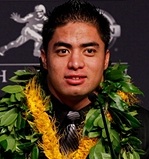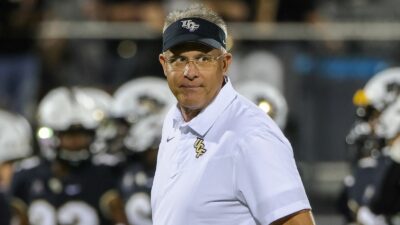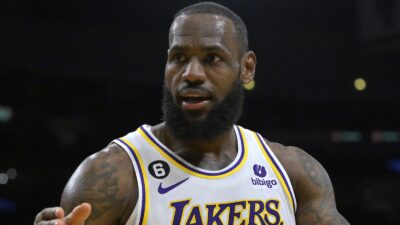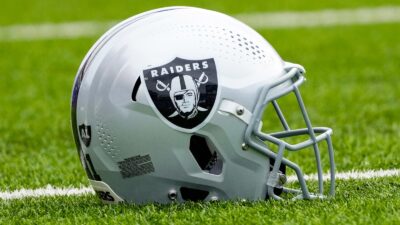 Say it ain’t so… Te’o. Just when you thought it was safe to believe in a feel-good sports story involving the strength of character in the face of tragedy, you get the Manti Te’o saga that erupted on Wednesday. And I was just starting to get my head around the apostrophe in his last name. (A D’Brickashaw he is not.) Touchdown Jesus may want to lay low until the heat dies down.
Say it ain’t so… Te’o. Just when you thought it was safe to believe in a feel-good sports story involving the strength of character in the face of tragedy, you get the Manti Te’o saga that erupted on Wednesday. And I was just starting to get my head around the apostrophe in his last name. (A D’Brickashaw he is not.) Touchdown Jesus may want to lay low until the heat dies down.
A little more than a week has passed since Notre Dame lost out in its bid to become national champion for the first time since 1988. Alabama dashed those hopes, presumably the biggest damage done by a tide since Noah came floating by.
The story of how Notre Dame reached the National Championship Game was largely written on the shoulders of their burly Heisman-candidate linebacker Manti Te’o, who captured the hearts and minds of many with his story of perseverance despite the death of his grandmother and cancer-stricken girlfriend.
His now-alleged girlfriend, a supposedly former Stanford student by the name of Lennay Kekua, made the Te’o story something worthy of a Hollywood script (an appellation since diminished by the “Twilight” series). Never mind that a purely defensive player hasn’t been deemed worthy of the award since Michigan’s Charles Woodson in 1997, Te’o’s (too many apostrophes for one man) prodigious performances earned him national acclaim and bolstered the national titles hope of a woebegone program. The story of his lost love was picked up numerous national media.
While his acuity on the field isn’t to be diminished, the nation has come to know they were duped. No cancer-stricken girlfriend. No lost love. No final words of “I love you.” Nothing. We were painted a picture that was one part Georgia O’Keefe, two parts George O’Leary.
It was misdirection, trickery: a boy-in-the-well story meant to grab attention perhaps for a player who may have been deserving of Heisman accolades but may not have gotten them otherwise. It immediately hearkened back to 1971, when the school convinced Joe Theismann to change the pronunciation of his last name to rhyme with the award, as if his on-the-field prowess were not enough.
Notre Dame has said that Te’o was duped along with the rest of us, a seemingly disingenuous denial that appears to be refuted by the Deadspin story released Wednesday.
Photos of unwitting people were pilfered, phony Internet profiles were created. A game ball was even dedicated to the memory of someone who never existed. How many people knew remains to be seen.
This story has become college football’s veritable Art Vandelay. The evidence increasingly points to Te’o having been complicit or, at least, knowing that this was going on, apparently perpetrated in no small part by a friend named Ronaiah Tuiasosopo.
Should we be surprised? We are a nation of “Quiz Show” scandals, Charlie Wilson’s war, and Dewey defeating Truman.
Far be it for a lot of people to start preaching from ivory towers, soap boxes, or whatever spare tchotchkes can be used as a raised platform from which to shout “shame.” The bigger disappointment comes from what to believe anymore.
A proliferation of Internet media sites and social media has broken down the once time-honored journalistic practice of going up to an athlete to get information. Now, a Twitter or Facebook post can be taken as gospel and published. Before long, something can go viral in a modern-day game of “Telephone” (remember those?).
Lance Armstrong was a hope to many. Another tale of overcoming adversity. That is, until his story was revealed to be a forgery, written by yet another athlete who didn’t want to compete within the confines of the rules of his sport. Baseball continues to weather the storm of the “who was clean, who wasn’t” debate, sports is quickly evolving into a David Copperfield illusion: Are we all too willing to believe what our eyes see, and our ears hear?
This is not to say Te’o should be lumped together with the drug cheats who tried to illicitly get a leg up on the competition. However, the question becomes why was this perpetrated? Were his accomplishments on the field not enough? Why was this fraudulent story fed to the public?
I, probably like most of you, believed the story of Manti Te’o and the tragic loss of his girlfriend to be genuine until the hours leading up to me turning on the laptop and finding out that the last five months of storytelling was more befitting a campfire setting with a flashlight pointed to the face.
Perhaps there is too much idealism in sports. That the games and our athletes are lionized too much at the cost of realizing that, after all, sports entertainment. Perhaps yet another tale has taught that athletes are just as fallible as us mere mortals. The characters may be real but the story itself might be fiction. The author Thomas Helm once wrote that the “test of a good novel is dreading to begin the last chapter.” Perhaps, next time sports writes another narrative, one might save some time and skip to the end.
Danny Lee has been involved in sports media for over nine years … While at UCLA, he turned his grade school doodles into a position with the Daily Bruin, and continues his diatribes to this day. He is an occasional contributor to Larry Brown Sports and you can follow him on twitter @whatthedleeoh













